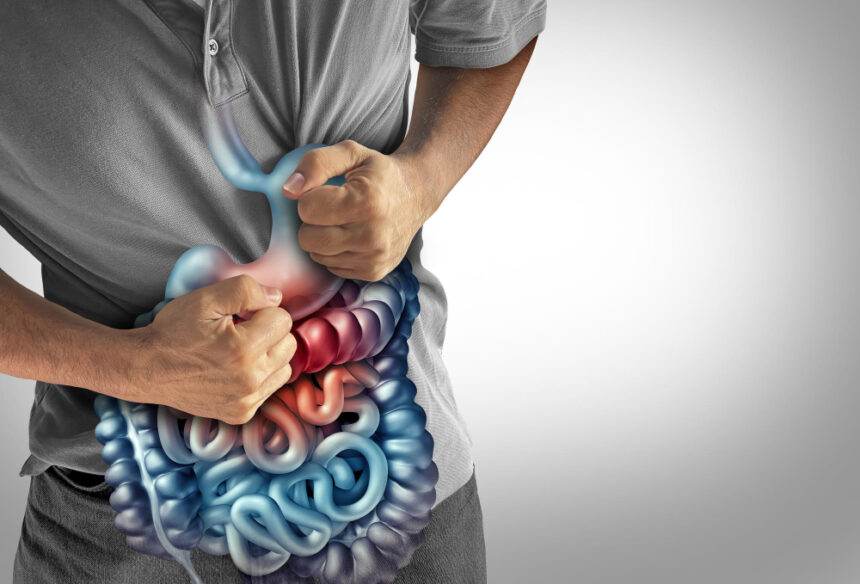Crohn’s disease is a chronic inflammatory bowel condition that affects millions of individuals across the globe. While medication plays a central role in controlling inflammation and easing symptoms, one of the most underestimated aspects of Crohn’s management is diet.
Navigating food choices with this condition can be overwhelming, particularly when attempting to balance nutrition with financial limitations. However, with the right approach, it’s possible to adopt a diet in Crohn that supports long-term health and remains budget-friendly.
Understanding how diet impacts Crohn’s and developing a practical, affordable eating strategy can significantly improve one’s quality of life. This guide offers a comprehensive overview of how to manage diet in Crohn effectively, with insights into which foods to favor, which to avoid, and how to stretch your grocery budget without compromising on health.
The Connection Between Crohn’s Disease and Nutrition
Crohn’s disease primarily affects the gastrointestinal tract, leading to symptoms such as abdominal pain, persistent diarrhea, fatigue, and weight loss. The inflammation can involve different parts of the digestive system and often results in poor nutrient absorption. Because of this, diet becomes a fundamental part of symptom management and maintaining overall well-being.
People with Crohn’s are more susceptible to nutrient deficiencies due to reduced absorption and frequent gastrointestinal distress. This makes a tailored dietary approach not just helpful but essential. However, no single diet works for every individual with Crohn’s, and personal triggers vary widely. What works for one person might worsen symptoms for another, making it necessary to approach food choices with caution and awareness.
Why Diet Matters in Crohn’s Management
Diet in Crohn plays a dual role: it helps manage symptoms and also supports healing during flare-ups and remission. During active disease periods, certain foods may aggravate the condition and intensify inflammation, while in remission, a balanced and nutritious diet helps restore the body and maintain health.
Eating the wrong foods can lead to discomfort, worsening inflammation, and poor nutrient absorption. On the other hand, a proper diet can reduce the frequency and severity of flare-ups, strengthen the immune system, and help maintain a healthy weight. As such, understanding your body’s responses and tailoring your meals accordingly is key to living well with Crohn’s.
Common Dietary Challenges Faced by Crohn’s Patients

People with Crohn’s often find themselves navigating a maze of dietary restrictions, nutritional deficiencies, and unexpected food intolerances. The unpredictability of the disease means that what is tolerable one day may cause a flare-up the next. Digestive sensitivity varies, and common food culprits include high-fiber items, dairy, spicy foods, and high-fat meals.
Another challenge lies in finding affordable foods that align with dietary restrictions. Many nutrient-dense and gut-friendly options are often expensive, and the rising cost of groceries makes maintaining a therapeutic diet feel out of reach. That’s why a strategic plan is necessary to make diet in Crohn manageable for both health and budget.
Building an Effective Diet Plan for Crohn’s Disease
There’s no universal “Crohn’s diet,” but some general principles help in forming a solid nutritional foundation. The goal is to reduce inflammation, minimize discomfort, and ensure sufficient intake of vitamins, minerals, and calories. Developing an individualized diet plan with professional guidance is ideal, but here are some basics to consider:
Emphasizing Easily Digestible Foods
During flare-ups, choosing foods that are gentle on the digestive tract is essential. Low-residue and low-fiber foods such as white rice, eggs, lean poultry, and cooked vegetables can help reduce bowel movements and discomfort. These foods are less irritating and allow the digestive system to rest and heal.
Soups, stews, and smoothies made with gut-friendly ingredients can provide nutrients while being easy on the stomach. Incorporating bone broth, bananas, applesauce, and peeled potatoes can also be soothing. This phase of the diet should focus on comfort and simplicity.
Nutritional Needs During Remission
When symptoms are under control, the dietary focus should shift toward replenishing lost nutrients and maintaining good health. Including a wide variety of fruits, vegetables, lean proteins, healthy fats, and whole grains (as tolerated) is essential. Probiotics and prebiotics can help support a balanced gut microbiome, which may be beneficial in preventing flare-ups.
Iron, calcium, vitamin D, vitamin B12, and magnesium are commonly deficient in people with Crohn’s. Ensuring adequate intake of these nutrients through food or supplements under medical supervision is important. Fortified cereals, leafy greens, fish, and eggs are excellent additions to support this phase of dietary management.
Hydration and Its Importance
Staying hydrated is another critical aspect of managing diet in Crohn. Chronic diarrhea can lead to dehydration and loss of electrolytes, so drinking plenty of water and consuming electrolyte-rich fluids like coconut water or oral rehydration solutions is vital.
Limiting caffeine and alcohol, both of which can irritate the gut, is also advised. Herbal teas and diluted juices can serve as gentle alternatives.
Identifying Food Triggers Through a Food Diary
Tracking what you eat and how your body responds is one of the most effective ways to identify personal triggers. A food diary can help pinpoint which meals or ingredients lead to discomfort, making it easier to adjust your diet accordingly.
Record meals, snacks, beverages, symptoms, and their timing to notice patterns over time. This approach empowers you to eliminate problematic foods without unnecessarily restricting your diet. It also provides helpful insights for your healthcare provider or dietitian.
Crohn’s-Friendly Foods That Won’t Break the Bank
Eating well on a budget while managing Crohn’s is absolutely possible. The key is focusing on versatile, affordable ingredients that support digestive health. Canned vegetables (rinsed to reduce sodium), frozen fruits, eggs, lentils (if tolerated), and plain oatmeal are all budget-conscious choices.
Buying in bulk, shopping store brands, and preparing meals at home can stretch your grocery budget while ensuring control over ingredients. Meal planning and batch cooking help reduce food waste and ensure consistent nutrition. Even limited kitchen skills can go a long way with some basic recipes and planning.
Whole chickens, canned fish, and frozen vegetables offer excellent value and nutrition. Generic multivitamins or store-brand supplements may also help fill in nutritional gaps economically when approved by a doctor.
Avoiding High-Risk Foods During Flare-Ups
When symptoms are active, certain foods tend to cause more trouble than others. Raw vegetables, corn, beans, high-fat foods, caffeine, and spicy dishes are among the most common offenders. Carbonated beverages, nuts, seeds, and whole grains with rough texture can also irritate the gut lining.
Eliminating or minimizing these during a flare can offer relief. However, it’s important not to overly restrict your diet, as doing so can lead to further nutritional deficiencies. A healthcare provider or dietitian can help you reintroduce foods gradually once symptoms improve.
Emotional and Psychological Impacts of Food Restrictions
The relationship with food can become emotionally charged for those living with Crohn’s. Feelings of anxiety, guilt, or sadness may arise from having to avoid favorite foods or from dealing with unpredictable flare-ups. Social events and meals with friends can become sources of stress rather than enjoyment.
Acknowledging these feelings and seeking emotional support is essential. Speaking with a mental health counselor, joining a support group, or discussing your experiences with loved ones can help ease the burden. Developing a compassionate and flexible approach to your diet allows for better long-term management and a healthier mindset.
Cooking at Home: A Game-Changer for Crohn’s and Cost
Preparing meals at home is not only more budget-friendly but also allows for better control of ingredients and preparation methods. Simple cooking techniques like boiling, steaming, and baking are gentler on the digestive system and reduce the risk of irritation.
Meal prepping for the week ahead can save time and money. Soups, rice dishes, and roasted vegetables can be made in batches and stored easily. Using slow cookers or instant pots can simplify cooking while maximizing flavor and nutrition.
Experimenting with homemade versions of your favorite dishes, adjusted for Crohn’s safety, can bring back enjoyment to eating. With time, even a restricted diet can feel satisfying and rich in flavor.
Supplements and Their Place in Crohn’s Nutrition
Because of the absorption issues related to Crohn’s disease, many individuals need supplements to fill in the nutritional gaps. Iron, B12, folate, and vitamin D are the most commonly prescribed supplements. Some people may also benefit from probiotics to promote gut balance.
It’s important to choose high-quality, doctor-recommended supplements, as not all products are created equally. Over-the-counter multivitamins from trusted brands can be a cost-effective way to maintain nutrient levels. Always check with your healthcare provider before beginning any new supplement, especially during flares.
Managing Diet in Crohn on a Tight Budget
It’s understandable to feel overwhelmed by the costs associated with a health-focused diet, but there are many strategies that can help:
Shopping in bulk at warehouse stores, planning meals in advance, choosing generic brands, and cooking at home are all ways to reduce expenses. Community food programs and food banks sometimes offer nutrition assistance, including fresh produce.
Choosing cost-effective protein sources such as eggs, canned tuna, legumes (if tolerated), and tofu can make meals affordable and nutritious. Buying produce that’s in-season and freezing extras for later use helps extend your food supply without sacrificing quality.
Working With a Dietitian for Personalized Support
Navigating diet in Crohn doesn’t have to be a solo journey. Working with a registered dietitian who understands Crohn’s disease can provide much-needed clarity and structure. A professional can help create a sustainable eating plan that accounts for both health needs and financial constraints.
They can assist with finding affordable substitutions, crafting balanced meal plans, and helping you identify and reintroduce food triggers. Many insurance plans cover dietitian services, and some clinics offer sliding-scale fees for those without coverage.
Developing Long-Term Habits for Lifelong Wellness
Ultimately, managing diet in Crohn requires adaptability, patience, and consistency. It’s not about following a strict rulebook but about understanding your body and making informed, balanced choices over time.
Building long-term habits like keeping a food diary, cooking at home, staying hydrated, and being mindful of food triggers can turn what feels like a daily struggle into a manageable lifestyle. With time and knowledge, eating with Crohn’s can become less about restriction and more about nourishment and empowerment.
Striking a Balance Between Health and Affordability
Living with Crohn’s disease poses unique challenges, especially when it comes to maintaining a nutritious diet on a budget. However, by understanding your body’s needs, staying informed about affordable food choices, and practicing mindful eating, you can achieve a balanced and health-supportive diet in Crohn without financial strain.
Smart planning, preparation, and the right mindset make all the difference. Whether you’re in the middle of a flare or enjoying a period of remission, there are always manageable and cost-effective ways to support your body through food. Your diet doesn’t have to be perfect just consistent, thoughtful, and aligned with your needs. With dedication, knowledge, and support, managing Crohn’s through diet can lead to a healthier, more fulfilling life.

